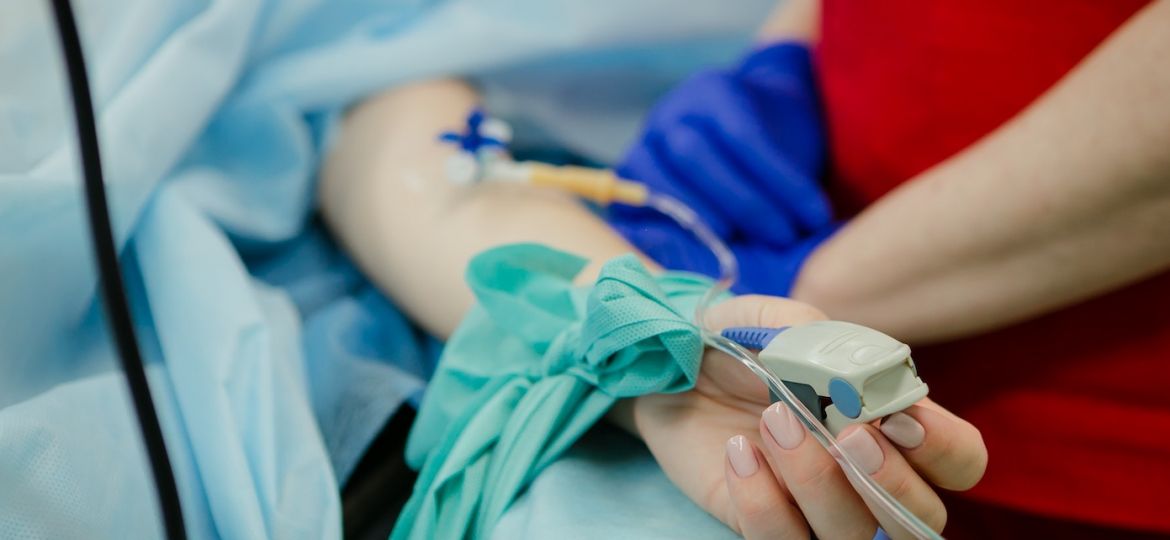
A Maven’s body is her most personal possession, the first and last home of her style and spirit. So when we heard that Smiley Morning Show co-host Nikki Reed was planning to donate a piece of hers to a stranger, we knew our readers would want to know more.
This December, Reed will go under the knife to have one of her healthy kidneys rem oved to be donated in a process called altruistic donation, meaning that she doesn’t know the recipient. She only knows that her kidney might save someone’s life. We asked Reed to tell us all about her feelings, fears, and expectations, and talked with a recent kidney donor who is a year out from the procedure, Hadley Green, about what a donor can expect.
oved to be donated in a process called altruistic donation, meaning that she doesn’t know the recipient. She only knows that her kidney might save someone’s life. We asked Reed to tell us all about her feelings, fears, and expectations, and talked with a recent kidney donor who is a year out from the procedure, Hadley Green, about what a donor can expect.
Reed’s biggest worries going into the procedure, like her motivation for the decision itself, are focused on those around her. She tells us that learning about the process and reading about other donors has calmed her anxieties, but she worries about inconveniencing her friends and family. They’ll be visiting and taking shifts to help out during recovery—which will involve two to three days in the hospital, a few weeks of rest, and six months of restrictions on heavy lifting.
Long-term, post-donation life will feature “some slight lifestyle adjustments in the partying department,” Reed tells us, as well as limitations on certain medications and protein consumption, but she feels that she probably needs to make those changes anyway, with the donation providing “more of a reason to chill out.” She expects, like most donors, that she will experience few complications in the short or long term. She has good reason to feel confident: Forty percent of kidney donations come from living donors; among them, only 22% experience even minor complications, while serious ones impact only 3-6%, per the NIH.
Reed’s excitement about helping someone who needs a kidney is building. We asked how she feels about sending the organ she’s been growing and protecting her whole life out into the world. “I feel excited!” she said. The radio host finds it “pretty cool that my kidney will just be out there doing its own thing.” Even the recovery, with its limitations and potential pain, will bring a welcome chance to catch up on sleep and streaming TV, and spend as much time as possible with friends and family. Reed won’t even miss much work, since she scheduled the procedure to take place just before the Smiley Morning Show’s annual Christmas break.
“I’m not giving up my kidney for the thank you, so I would hate it if they felt like they had to say that.”
Hadley Green knows just how the donation and recovery process can unfold. She participated in a pair donation, giving her kidney to a recipient whose aunt gave his to Green’s father in 2017. Pair donations are a bit more complex than altruistic ones: They require four patients to pass through a stupendous amount of testing, as well as the actual surgeries, simultaneously.
 Green experienced one of the many potential hurdles in the process. Forty-eight hours before her surgery, a final screening showed traces of West Nile virus in her blood from a previously undetected infection, resulting in a two-month postponement. When the big day finally arrived, the donors expected their surgeries to be over quickly, but Green’s kidney required some encouragement from transplant specialists before the recipient’s body would accept it. This meant that she was on the operating table for hours in case surgeons needed to put her kidney back in her body.
Green experienced one of the many potential hurdles in the process. Forty-eight hours before her surgery, a final screening showed traces of West Nile virus in her blood from a previously undetected infection, resulting in a two-month postponement. When the big day finally arrived, the donors expected their surgeries to be over quickly, but Green’s kidney required some encouragement from transplant specialists before the recipient’s body would accept it. This meant that she was on the operating table for hours in case surgeons needed to put her kidney back in her body.
Fortunately, that didn’t happen. Green is now fully recovered—strong and healthy with her one remaining kidney. A month after surgery, she was able to travel and live normally. The process gave her a greater appreciation for her body’s resilience and magnificence. She tells Indy Maven, “As women, we are bombarded with messages and imaging that tell us we can always be doing better or doing more at improving what we have been given…Going through this forced me to simply appreciate that my healthy body could directly help someone who has suffered.” In the end, the other three patients also recovered and are well now. Green’s recipient, who encountered bumps on his own recovery road, is now like family and they visit on a monthly basis.
If she’s able to meet her kidney’s recipient, what will Nikki Reed tell him or her? Not you’re welcome: “I’m not giving up my kidney for the thank you, so I would hate it if they felt like they had to say that. I just want them to be okay. I want to hug them and their family, tell them I love them, and to go and live the best life ever.”



